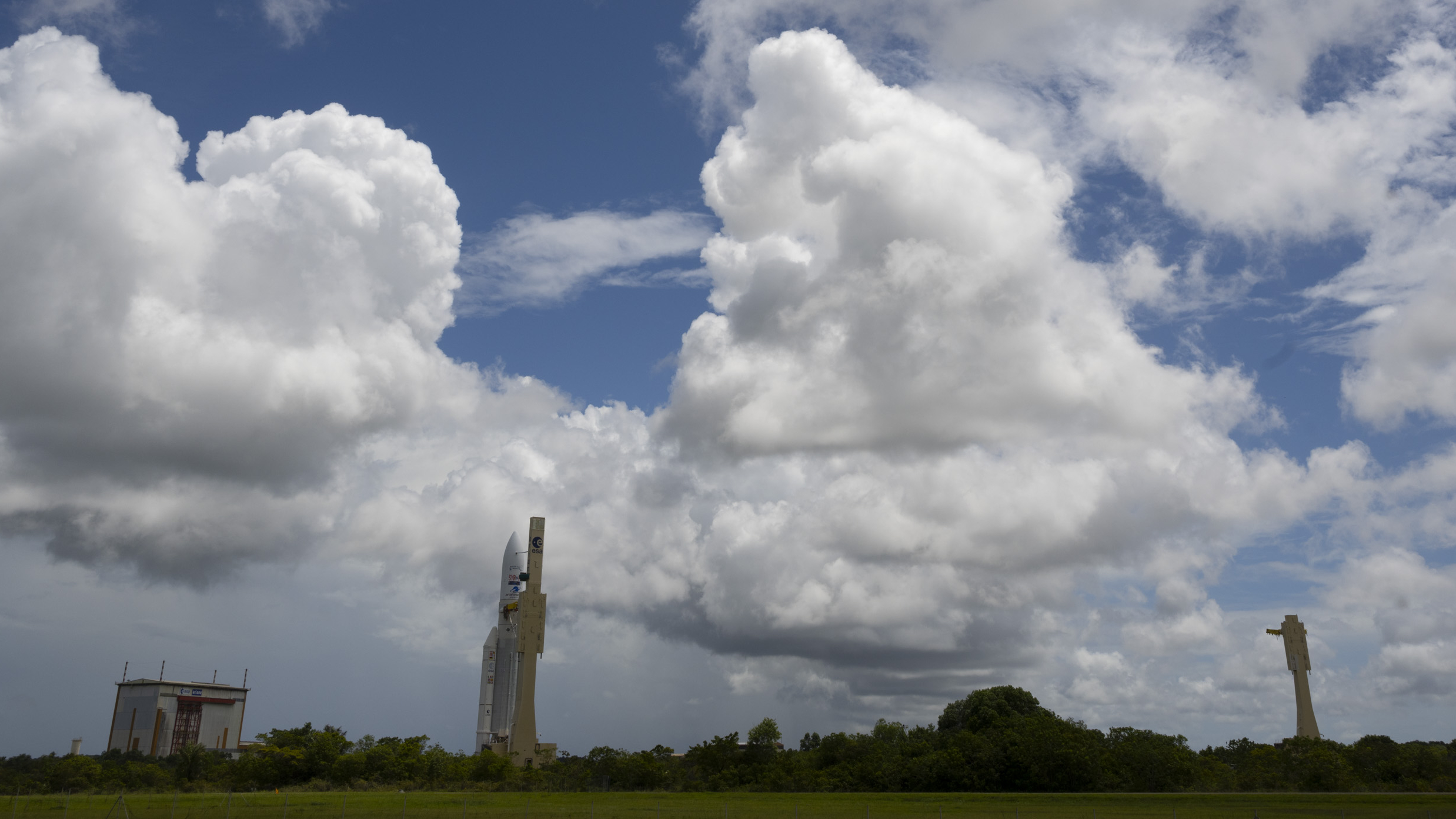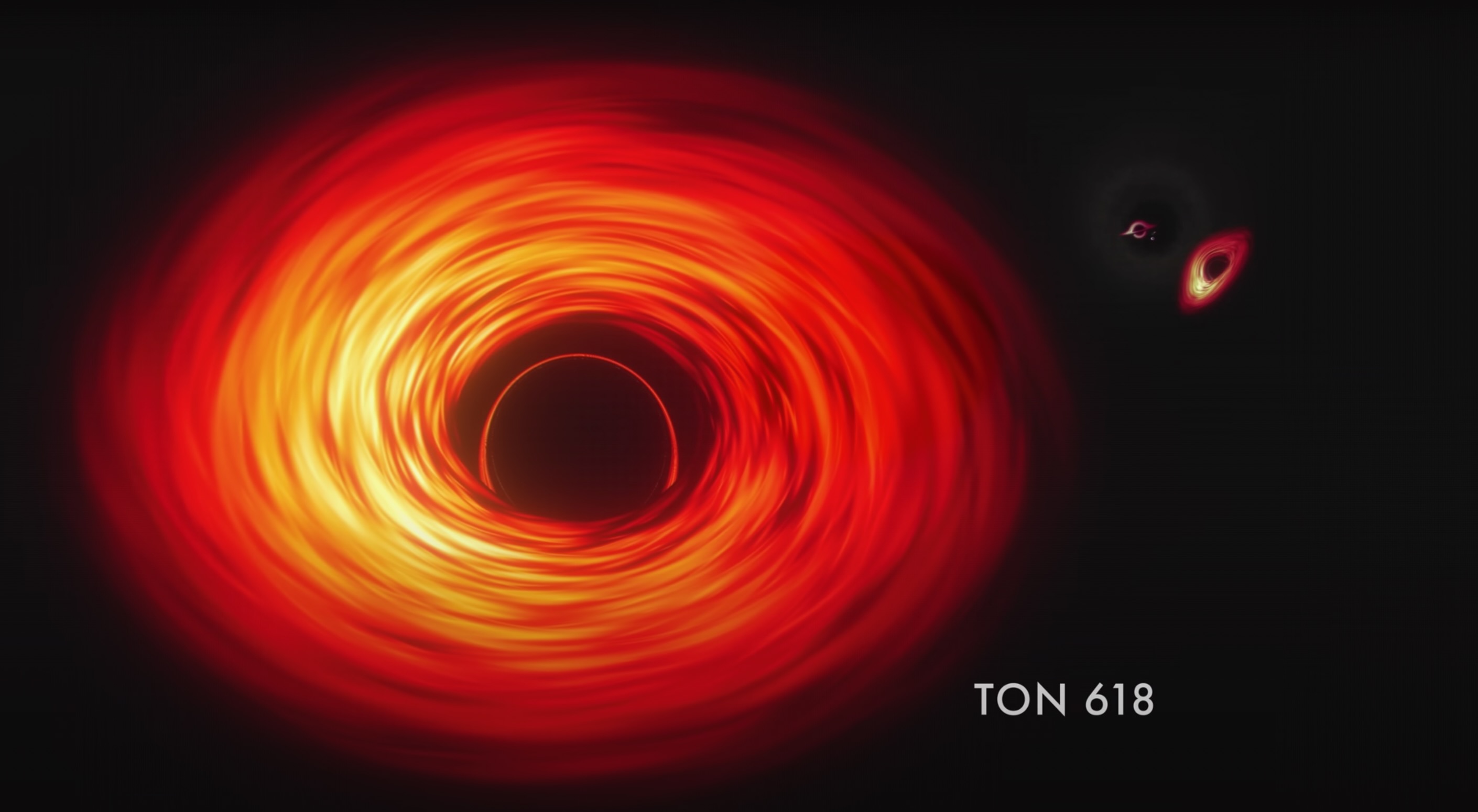Watch Europe's last-ever Ariane 5 rocket launch into space tonight in this free livestream
Europe's workhorse Ariane 5 rocket will launch for the final time on Wednesday (July 5), and you can watch the historic liftoff live.
The Ariane 5 is scheduled to fly from Europe's Spaceport in Kourou, French Guiana today, during a 95-minute window that opens at 6 p.m. EDT (2230 GMT; 7 p.m. local time in Kourou).
Watch it live here at Space.com, courtesy of Arianespace, the France-based company that operates the Ariane 5 for the European Space Agency (ESA). The webcast will begin at 5:30 p.m. EDT (2130 GMT), according to Arianespace. That's a lot of coverage, but this is the Ariane 5's swan song, after all.
The launch was delayed one day, from July 4, due to bad weather at the launch site and been on hold since mid-June due to rocket issues. Weather conditions looked promising for today's launch try, Arianespace said.
"Things are looking good, hence we have decided to resume the preparation operations and still target a lift-off tomorrow July 5 from 7pm local time onwards.," Arianespace wrote on Twitter late on July 4.
Related: The 10 best Ariane 5 rocket launches of all time
Today's mission, which Arianespace calls VA261, will deliver a pair of satellites to geostationary transfer orbit (GTO), an elliptical path high above Earth.
Breaking space news, the latest updates on rocket launches, skywatching events and more!
One of them, the German space agency's Heinrich-Hertz-Satellit, will research and test new communications technologies and scenarios, Arianespace wrote in a mission description.
The other spacecraft, called Syracuse 4B, "will enable the French Armed Forces to remain permanently connected during deployments," Arianespace wrote in the same description. "Syracuse 4B will be totally protected against the most extreme jamming methods. Built to defend French sovereignty, the satellite will also be able to support operations led by NATO and the EU."
After deployment into GTO, both satellites will make their own way to geostationary orbit, a circular path that lies about 22,200 miles (35,700 kilometers) above Earth.
The launch scene will seem a bit lonely without the Ariane 5, which can deliver about 11 tons (10 metric tons) of payload to GTO and 22 tons (20 metric tons) to low Earth orbit. The rocket debuted in 1996 and has launched 116 times to date.
Among the many spacecraft the Ariane 5 has carried off Earth are ESA's Rosetta probe, the first spacecraft ever to orbit a comet, which launched in March 2004, and NASA's James Webb Space Telescope, which lifted off on Christmas Day in 2021.
Arianespace is developing a rocket called the Ariane 6 to replace the Ariane 5. The new heavy lifter was supposed to debut in 2020, but a series of delays have pushed its debut back to late 2023 at the earliest.
Today's launch was originally scheduled for June 16, but it was pushed back after the mission team spotted potential issues with three pyrotechnical transmission lines associated with the Ariane 5's solid rocket boosters.

Michael Wall is a Senior Space Writer with Space.com and joined the team in 2010. He primarily covers exoplanets, spaceflight and military space, but has been known to dabble in the space art beat. His book about the search for alien life, "Out There," was published on Nov. 13, 2018. Before becoming a science writer, Michael worked as a herpetologist and wildlife biologist. He has a Ph.D. in evolutionary biology from the University of Sydney, Australia, a bachelor's degree from the University of Arizona, and a graduate certificate in science writing from the University of California, Santa Cruz. To find out what his latest project is, you can follow Michael on Twitter.

